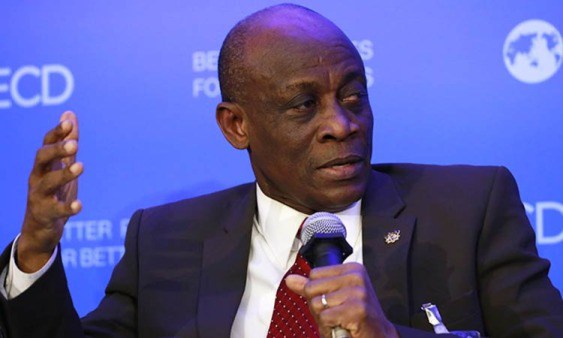Former Finance Minister Seth Terkper has reiterated his advice that government should not engage in what appears to be another ‘fiscal offset’ in the 2023 budget, similar to what occurred in government’s 2017 budget.
In this context, Mr. Terkper has called on government to disclose its plan for dealing with a large GH¢77bn pipeline of arrears and contracts in the 2021 Budget Performance Report. He noted that a similar plan was used to deal with the ‘single spine’ wage arrears in 2020.
He argued that given that budget overruns are at the core of most debt challenges, transparency and accountability in government finances are crucial for securing an IMF programme. Moreover, they are also needed for sustainable economic growth and development.
Mr. Terkper has argued that the banking and energy sector bailout costs being treated as memoranda items – rather than adding them to the country’s deficit and public debt stock – creates a false impression of fiscal consolidation.
The former minister has pointed out that this practice by government resulted in rapid financial market rating downgrades of the country’s sovereign bonds and eventual debt default – with the deficit revised upward to 7% and 7.2% for 2018 and 2019 respectively, when the IMF and ratings agencies adjusted Ghana’s fiscal deficit and public debt figures.
Mr. Terkper recalled that in 2017, the incoming Akufo-Addo administration accused John Mahama’s administration of overlooking arrears totalling about GH¢7bn. However, only about GH¢2bn was carried forward to the 2017 fiscal year after an apparent offset of GH¢5bn against total expenditures. At the time, Mr. Terkper opposed the move in various articles and interviews.
In a similar move, Mr. Terkper notes that the 2023 budget shows another apparent offset of GH¢22bn that also appears to reduce the deficit from about GH¢60bn to approximately GH¢38bn. As with the 2.3% reduction in the budget or fiscal deficit in 2017, repeating the fiscal move results in a ‘paper’ reduction by 3.7% of GDP.
The former minister has warned that this practice by government creates a false impression of fiscal prudence, which is unsustainable in the long-term. He has argued that such moves lead to a lack of transparency and accountability in government finances, which can lead to financial instability and economic turmoil.
Mr. Terkper’s concerns reflect a broader need for transparency and accountability in government finances in Ghana. Government must address these concerns to build trust with its citizens, investors and international partners. Failure to do so could lead to further economic instability and harm the country’s long-term economic prospects.










